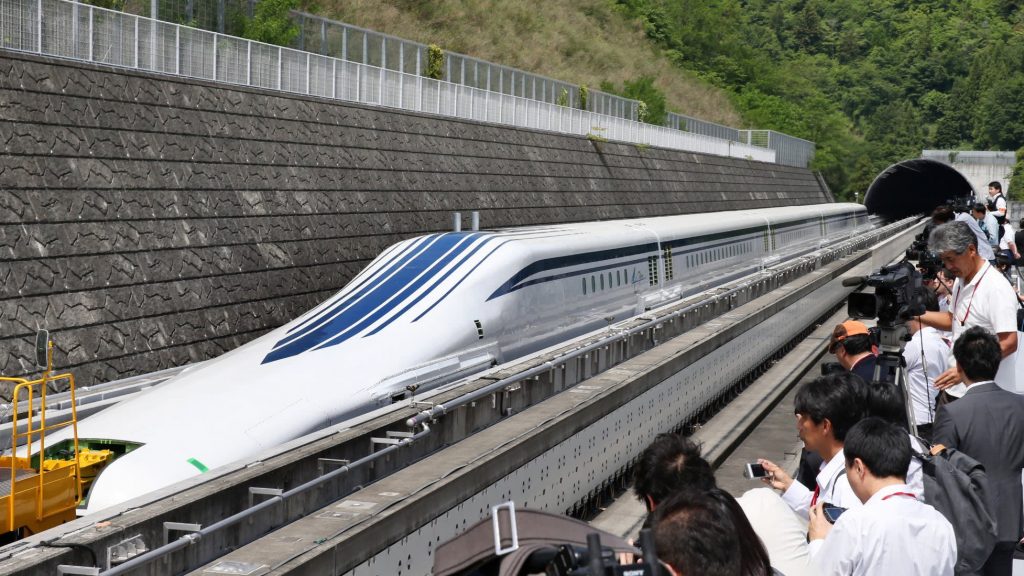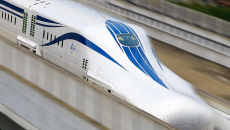Japan has been constructing its newest model of the bullet train, the Maglev Chuo Shinkansen, but a recent setback may delay its schedule.

Japan has been constructing its newest model of the bullet train, the Maglev Chuo Shinkansen, since 2014. However, a recent setback may delay its scheduled 2027 partial opening.

The Chuo Shinkansen will implement maglev technology. The name maglev is short for magnetic levitation and involves using 2 sets of very powerful magnets to levitate the train off the ground and push it forward. The lack of friction from this allows maglev trains to transport passengers at record speeds comfortably. The Chuo Shinkansen project is currently scheduled for a 2027 partial opening, connecting Tokyo to Nagoya in about 40 minutes, cutting off an incredible 50 minutes from the current shinkansen time. However, construction has recently come to a standstill in Shizuoka.

Current construction plans would go through the Southern Alps, which provides water to the Ōi-gawa River. This would reportedly cause groundwater to flow into the tunnel, draining a large amount of water from the river (approximately 2 tons per second). Shizuoka Governor Kawakatsu Heita is holding off permitting to build the 9-kilometer tunnel while in discussions with Central Japan Railways.
Representatives of Central Japan Railways insist that there will be no environmental damage to the river due to underground waterways and pumps’ implementation to redirect the water. Still, they have yet to provide solid evidence to support this claim. Governor Kawakatsu is remaining steadfast in his decision to hold off in the meantime while other options are discussed. According to him, the Ōi-gawa River is an important part of many residents’ lives.
Related Articles
Japan’s Maglev Train Project Faces Setbacks in Shizuoka
The President of JR Tokai, Shin Kaneko, has stated that it will be impossible for the maglev train to open by 2027 due to the ongoing issues in Shizuoka.
Major Japanese Retailers Step up Support for Ukrainian Refugees
Japanese corporations such as Don Quijote, Muji, and Uniqlo are behind major relief efforts to help displaced Ukrainian refugees.





